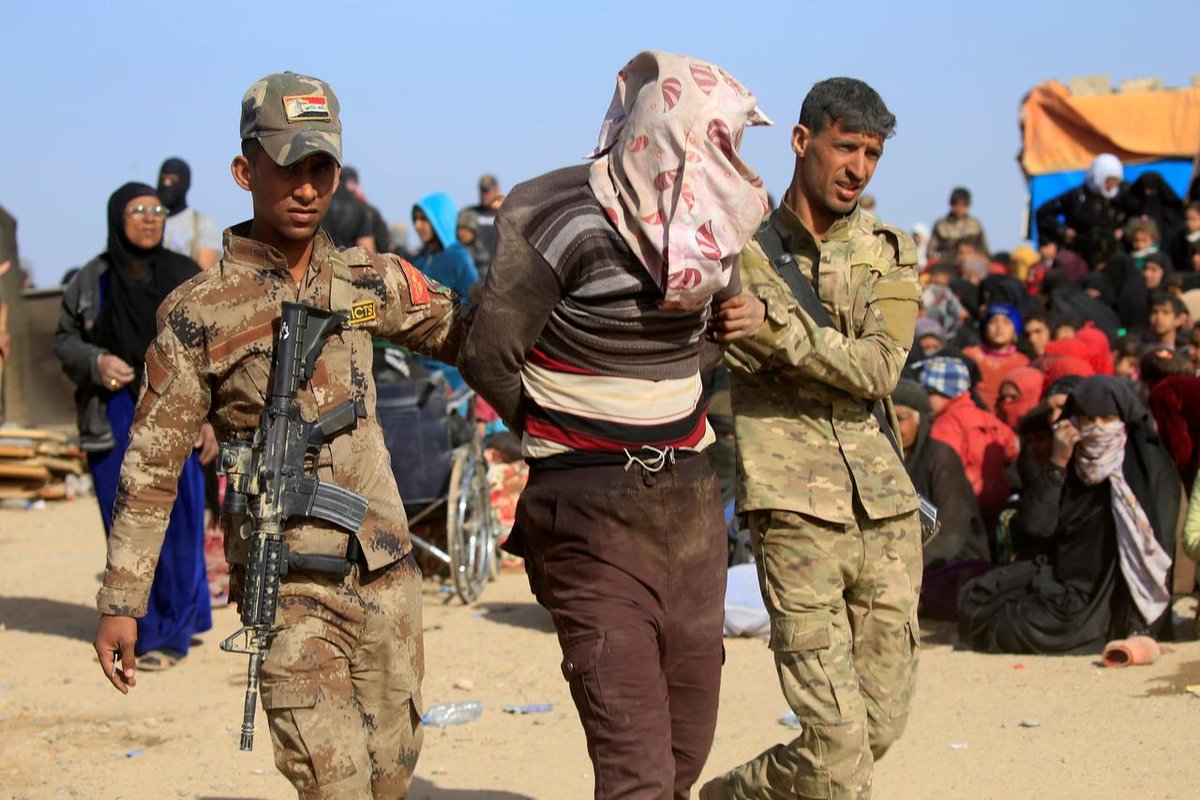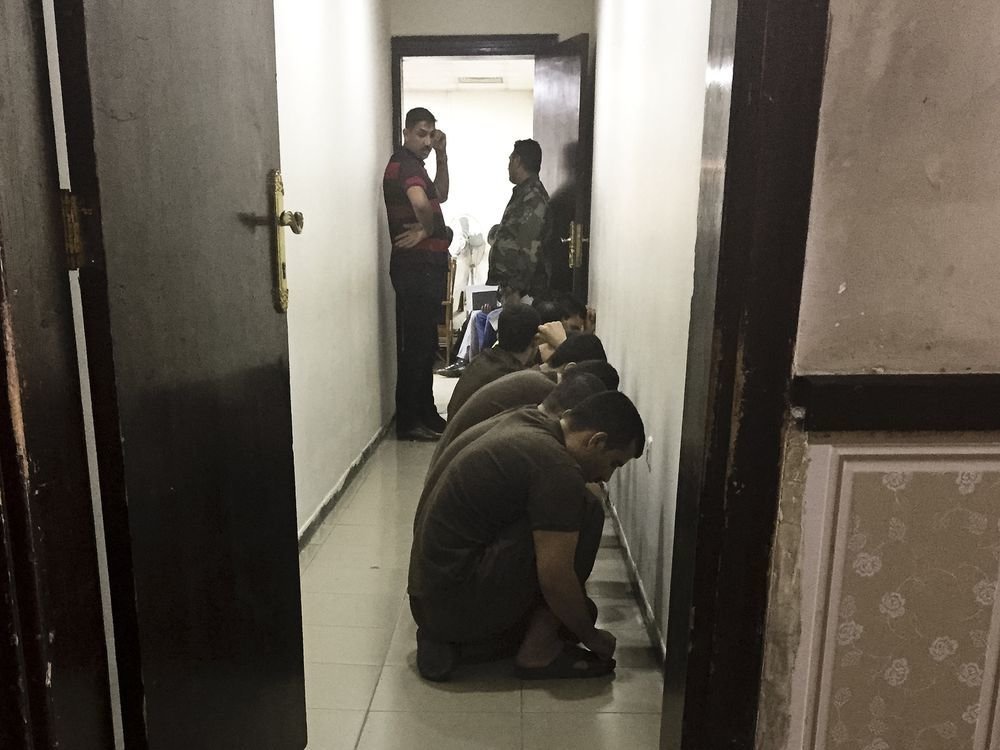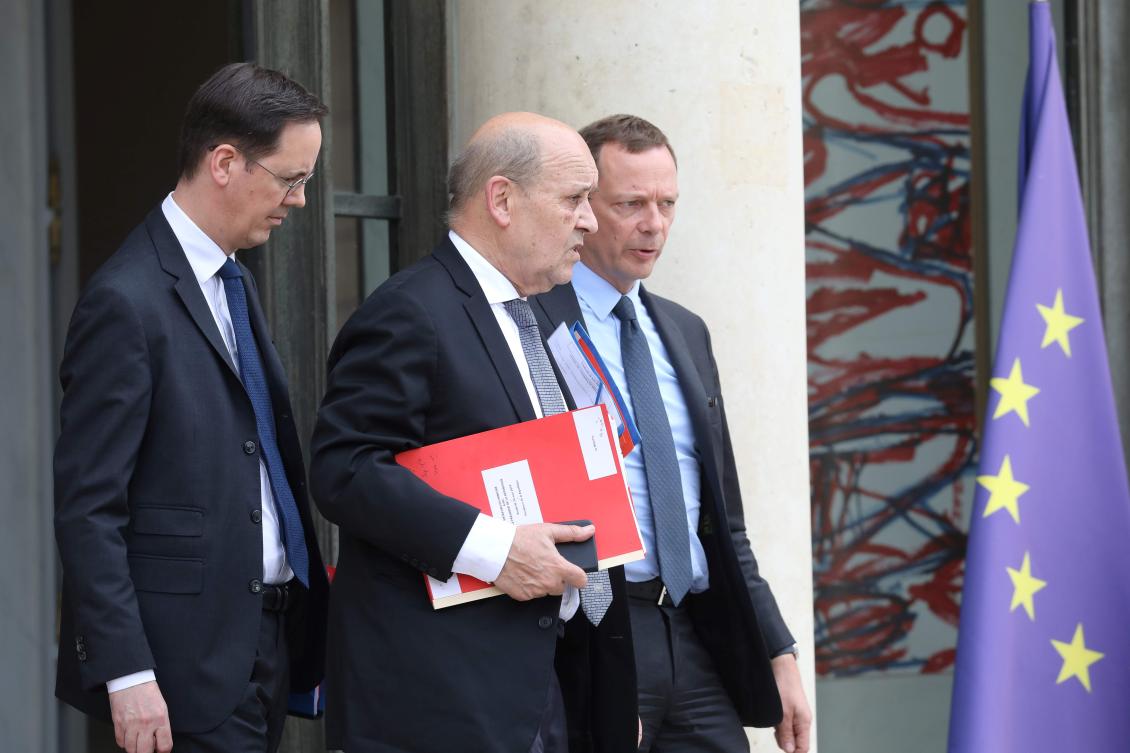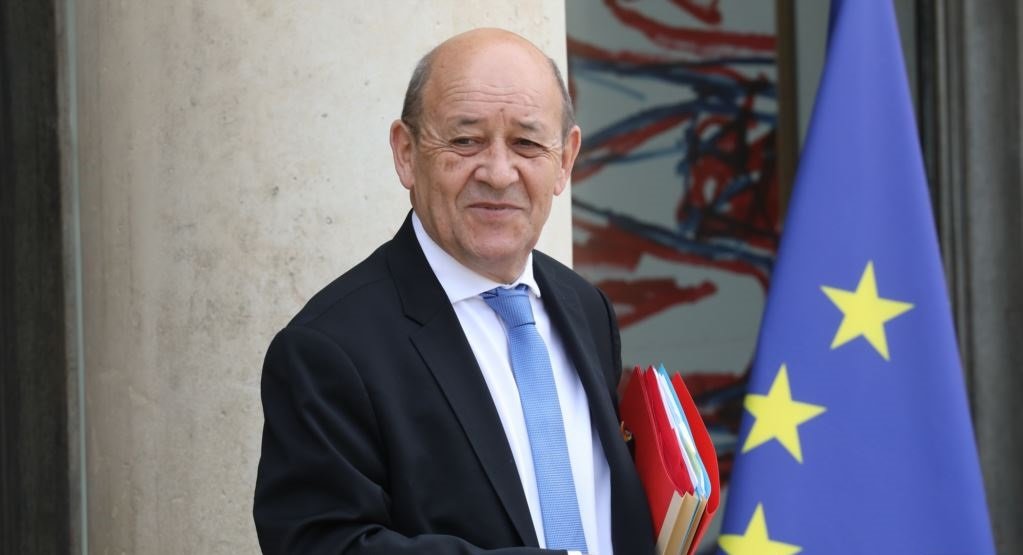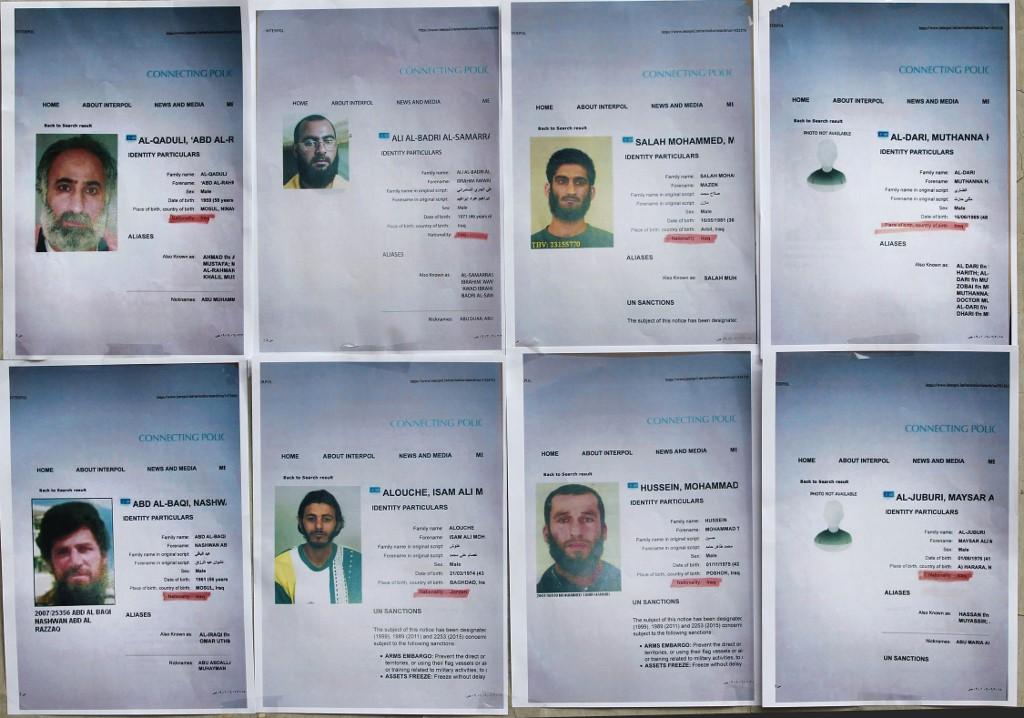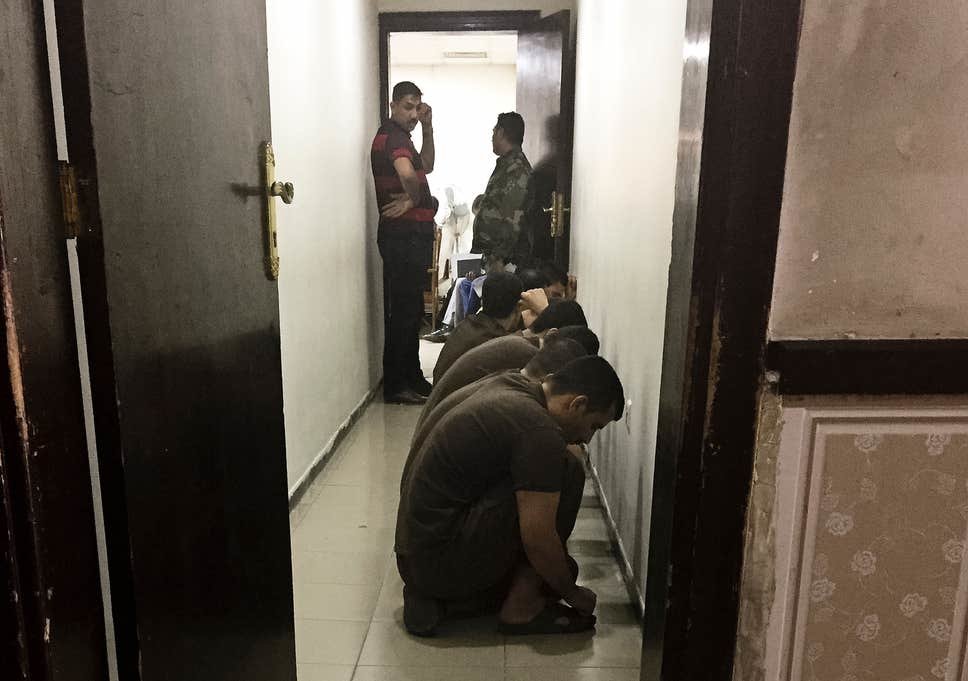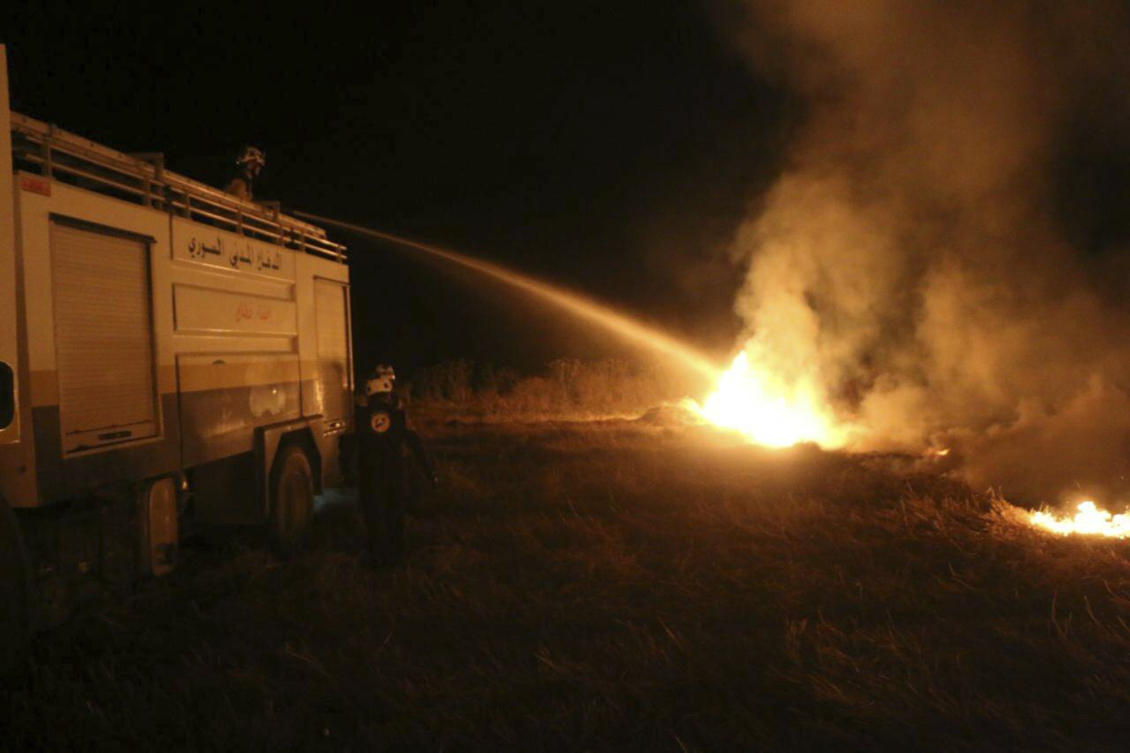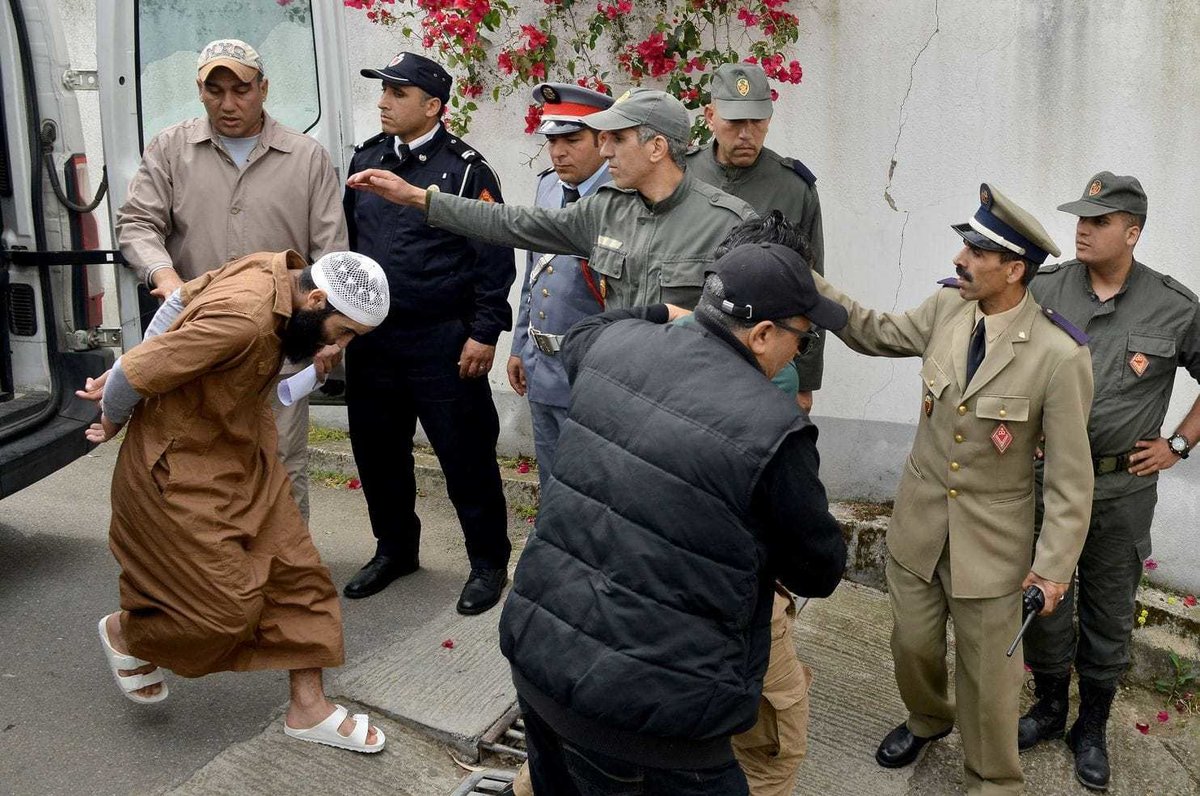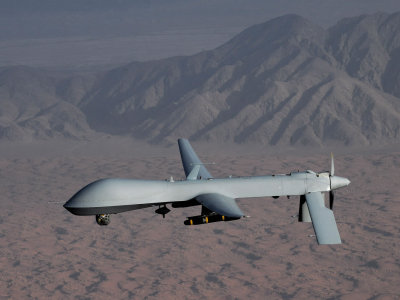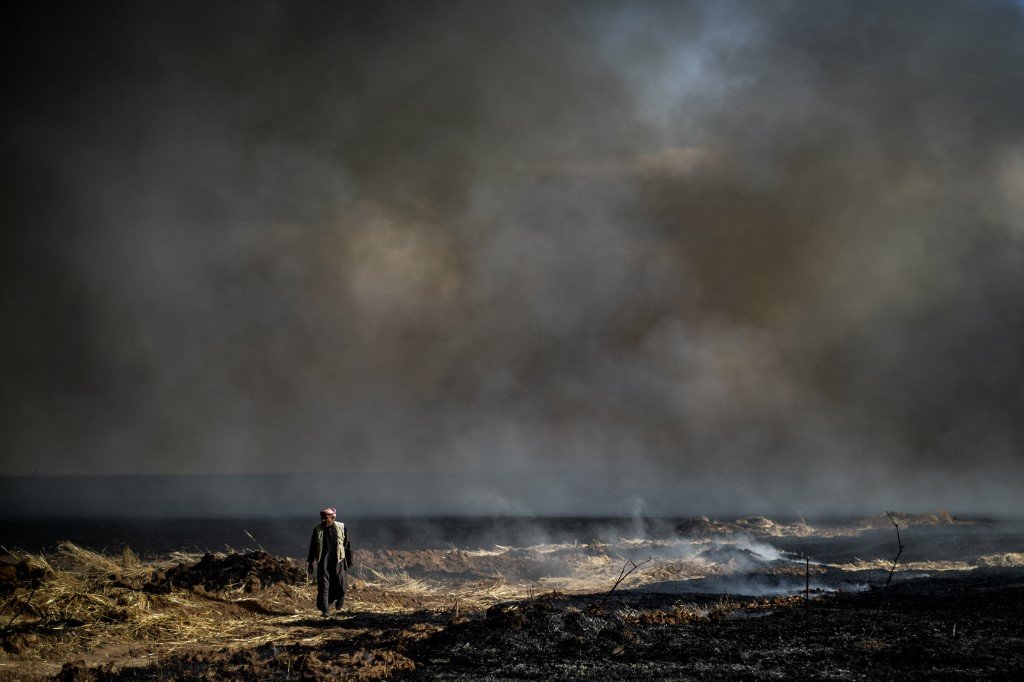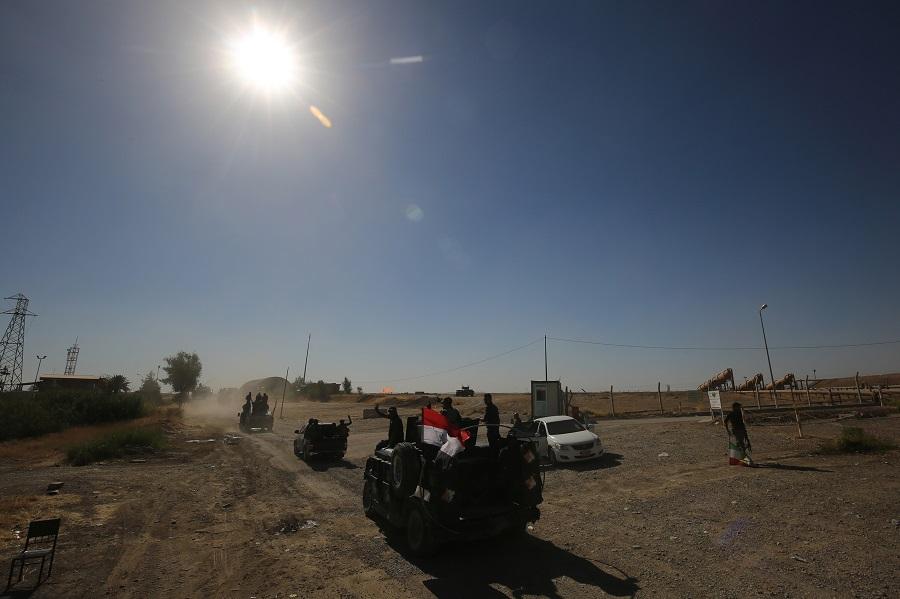Daesh remnants wage hidden war of raids, killings
AP
May 13, 2019
One wore civilian clothes, the other an army uniform. They said they were from the Iraqi army’s 20th Division, which controls the northern Iraqi town of Badoush. In fact, they were Daesh group militants who had come down from the surrounding mountains into Badoush with one thing on their mind: Revenge.
Around 13 more gunmen were waiting outside. The terrorists pulled Khadija’s husband and his two brothers into the yard and shot them dead, leaving them in a pool of blood — punishment for providing information to the Iraqi military.
“How can we live after this?” Khadija said. The three brothers were the providers for the entire family. “They left their children, their livestock, their wives, and their elderly father who doesn’t know what to do now.”
A year and a half after Daesh was declared defeated in Iraq, the militants still evoke fear in the lands of their former so-called caliphate across northern Iraq.
The terrorists, hiding in caves and mountains, emerge at night to carry out kidnappings, killings and roadside ambushes, aimed at intimidating locals, silencing informants and restoring the extortion rackets that financed Daesh’s rise to power six years ago.
It is part of a hidden but relentless fight between the group’s remnants waging an insurgency and security forces trying to stamp them out, relying on intelligence operations, raids and searches for sleeper cells among the population.
The militants’ ranks number between 5,000 and 7,000 around Iraq, according to an Iraqi intelligence official.
“Although the territory once held by the so-called caliphate is fully liberated, Daesh fighters still exhibit their intention to exert influence and stage a comeback,” said Maj. Gen. Chad Franks, deputy commander-operations and intelligence for the US-led coalition.
In towns around the north, Iraqi soldiers knock on doors in the middle of the night, looking for suspects, based on intelligence tips or suspicious movements. They search houses and pull people away for questioning.
In February, Human Rights Watch accused authorities of torturing suspects to extract confessions of belonging to Daesh, an accusation the Interior Ministry has denied. Detainees are pushed by the thousands into what critics call sham trials, with swift verdicts — almost always guilty — based on almost no evidence beyond confessions or unaccountable informants’ testimony. The legacy of guilt weighs heavily especially on women and children, who face crushing discrimination because of male relatives seen as supporting Daesh.
AP journalists embedded with a battalion of the 20th Division last month and witnessed several of its raids at Badoush.
Badoush, on the Tigris River just outside the city of Mosul, is a key battleground because it was once one of the most diehard Daesh strongholds.
In the summer of 2014, it was a launching pad for the militants’ blitz that overran Mosul and much of northern Iraq. Daesh built a strong financial base by extorting money from the owners of Badoush’s many industrial facilities. Security officials estimate two-thirds of its population — which numbered around 25,000 before the war — were at one point members or supporters of the group.
Now the population is divided. Residents who suffered at the hands of Daesh or lost loved ones to the group are suspicious of neighbors they believe still support the militants. Within families, some members belonged to the group and others opposed it.
The Badoush area alone has seen 20 terror attacks, from bombings to targeted killings, since it was retaken from the militants in March 2017, according to the Kurdish Security Council. The militants brag about the attacks in videos that show fighters storming houses and killing purported “apostates” and spies.
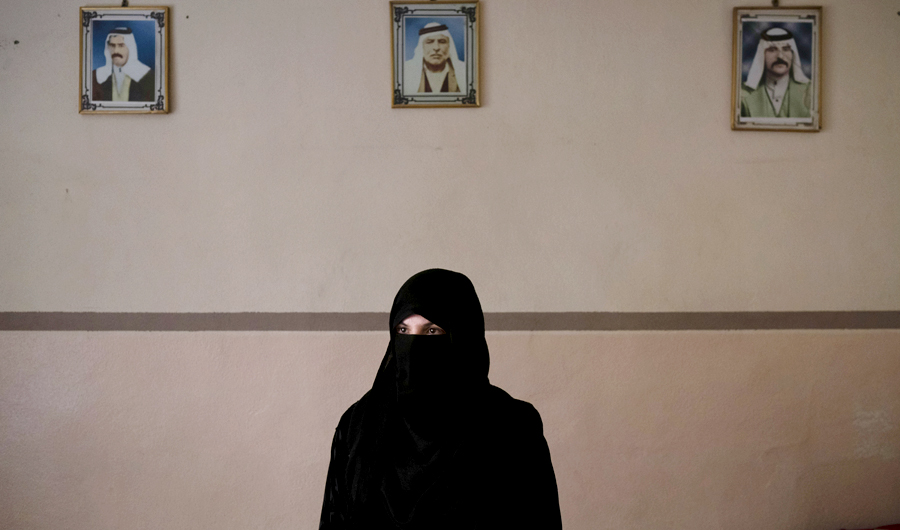
 www.arabnews.com
www.arabnews.com
AP
May 13, 2019
- The terrorists pulled Khadija’s husband and his two brothers into the yard and shot them dead
- Badoush, on the Tigris River just outside the city of Mosul, is a key battleground
One wore civilian clothes, the other an army uniform. They said they were from the Iraqi army’s 20th Division, which controls the northern Iraqi town of Badoush. In fact, they were Daesh group militants who had come down from the surrounding mountains into Badoush with one thing on their mind: Revenge.
Around 13 more gunmen were waiting outside. The terrorists pulled Khadija’s husband and his two brothers into the yard and shot them dead, leaving them in a pool of blood — punishment for providing information to the Iraqi military.
“How can we live after this?” Khadija said. The three brothers were the providers for the entire family. “They left their children, their livestock, their wives, and their elderly father who doesn’t know what to do now.”
A year and a half after Daesh was declared defeated in Iraq, the militants still evoke fear in the lands of their former so-called caliphate across northern Iraq.
The terrorists, hiding in caves and mountains, emerge at night to carry out kidnappings, killings and roadside ambushes, aimed at intimidating locals, silencing informants and restoring the extortion rackets that financed Daesh’s rise to power six years ago.
It is part of a hidden but relentless fight between the group’s remnants waging an insurgency and security forces trying to stamp them out, relying on intelligence operations, raids and searches for sleeper cells among the population.
The militants’ ranks number between 5,000 and 7,000 around Iraq, according to an Iraqi intelligence official.
“Although the territory once held by the so-called caliphate is fully liberated, Daesh fighters still exhibit their intention to exert influence and stage a comeback,” said Maj. Gen. Chad Franks, deputy commander-operations and intelligence for the US-led coalition.
In towns around the north, Iraqi soldiers knock on doors in the middle of the night, looking for suspects, based on intelligence tips or suspicious movements. They search houses and pull people away for questioning.
In February, Human Rights Watch accused authorities of torturing suspects to extract confessions of belonging to Daesh, an accusation the Interior Ministry has denied. Detainees are pushed by the thousands into what critics call sham trials, with swift verdicts — almost always guilty — based on almost no evidence beyond confessions or unaccountable informants’ testimony. The legacy of guilt weighs heavily especially on women and children, who face crushing discrimination because of male relatives seen as supporting Daesh.
AP journalists embedded with a battalion of the 20th Division last month and witnessed several of its raids at Badoush.
Badoush, on the Tigris River just outside the city of Mosul, is a key battleground because it was once one of the most diehard Daesh strongholds.
In the summer of 2014, it was a launching pad for the militants’ blitz that overran Mosul and much of northern Iraq. Daesh built a strong financial base by extorting money from the owners of Badoush’s many industrial facilities. Security officials estimate two-thirds of its population — which numbered around 25,000 before the war — were at one point members or supporters of the group.
Now the population is divided. Residents who suffered at the hands of Daesh or lost loved ones to the group are suspicious of neighbors they believe still support the militants. Within families, some members belonged to the group and others opposed it.
The Badoush area alone has seen 20 terror attacks, from bombings to targeted killings, since it was retaken from the militants in March 2017, according to the Kurdish Security Council. The militants brag about the attacks in videos that show fighters storming houses and killing purported “apostates” and spies.

Daesh remnants wage hidden war of raids, killings
BADOUSH, IRAQ: It was a chilly January evening, and Khadija Abd and her family had just finished supper at their farm when the two men with guns burst into the room. One wore civilian clothes, the other an army uniform. They said they were from the Iraqi army’s 20th Division, which controls the...
 www.arabnews.com
www.arabnews.com


